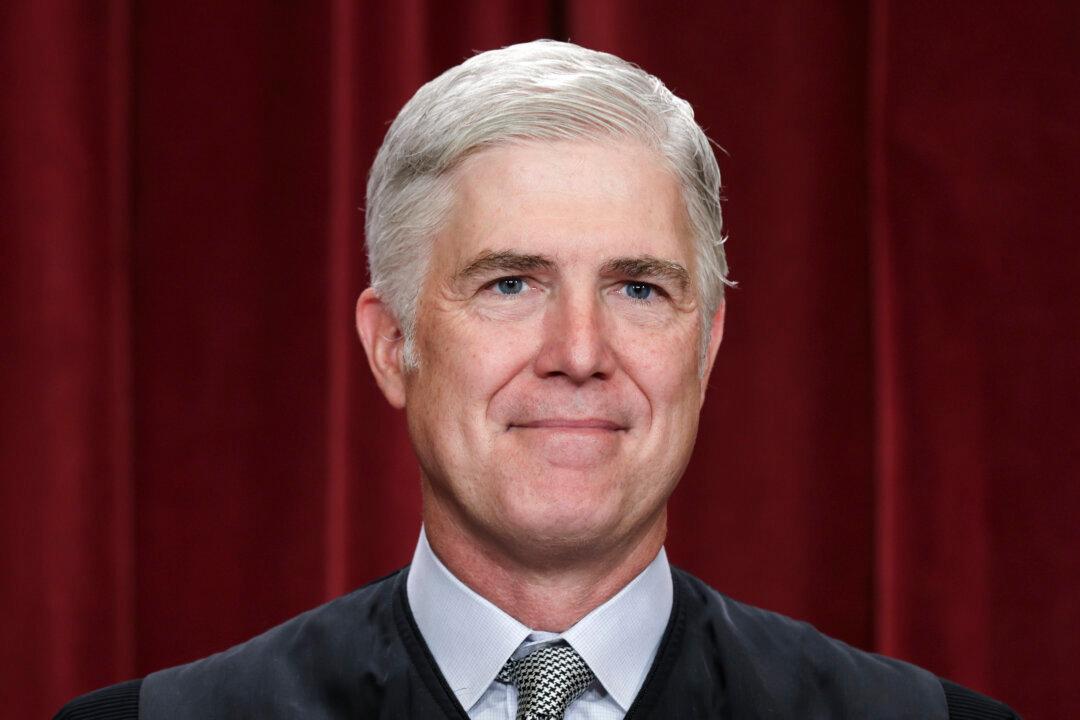U.S. Supreme Court Justice Neil Gorsuch this week defended the high court’s decision that affirmed presidents have immunity for their official acts, in a case involving a challenge by former President Donald Trump.
In early July, the Supreme Court issued a 6–3 decision, authored by Chief Justice John Roberts, that presidents cannot be prosecuted for actions that were within their constitutional powers. It tossed a lower court’s ruling that rejected Trump’s claims of immunity from federal charges relating to his activity after the 2020 election.





